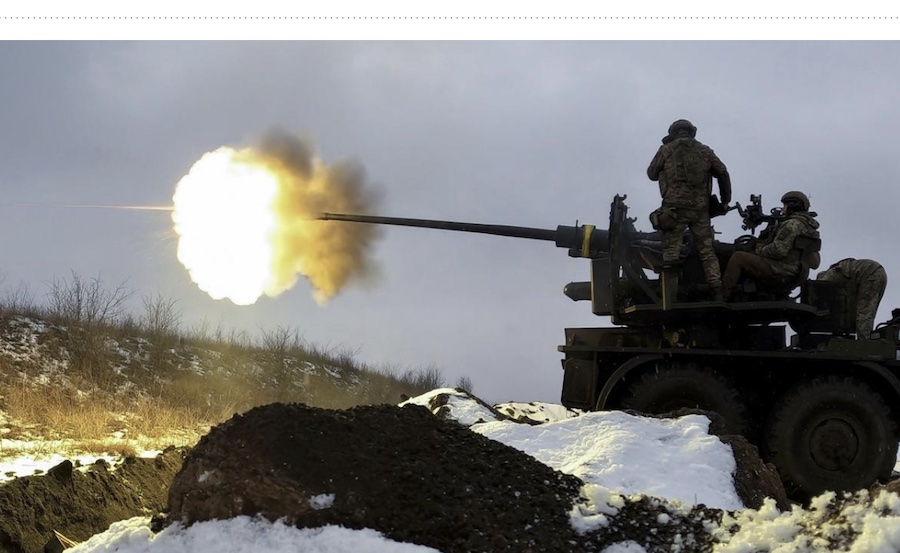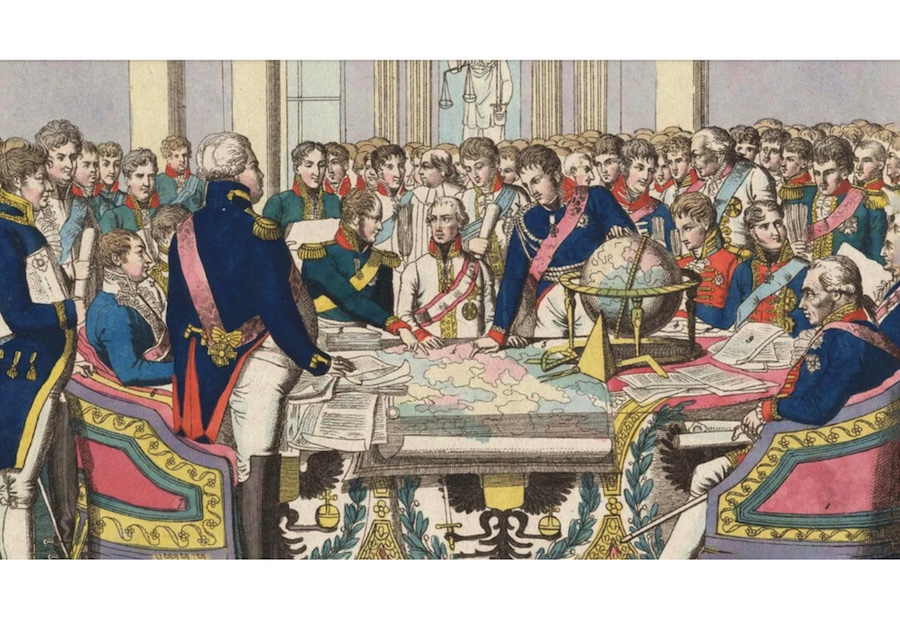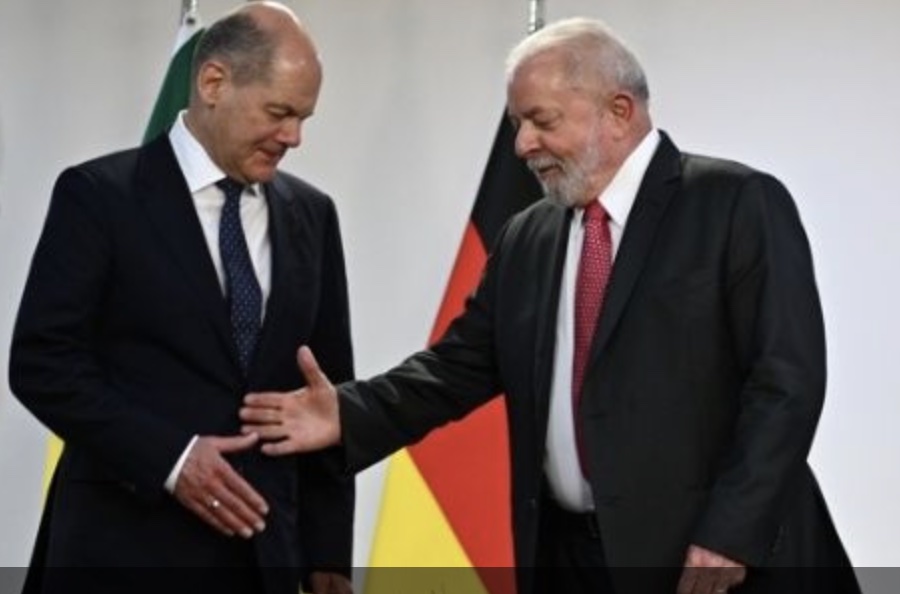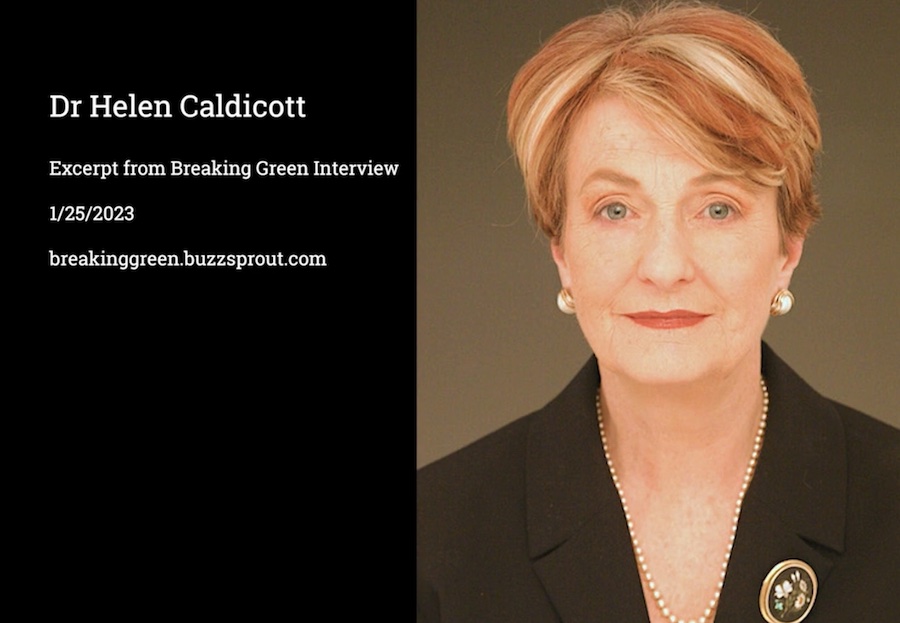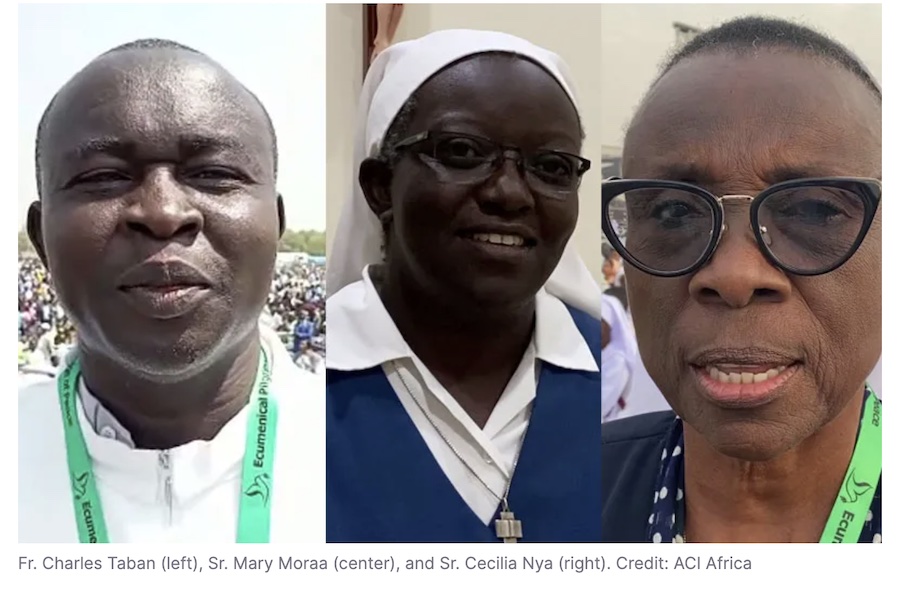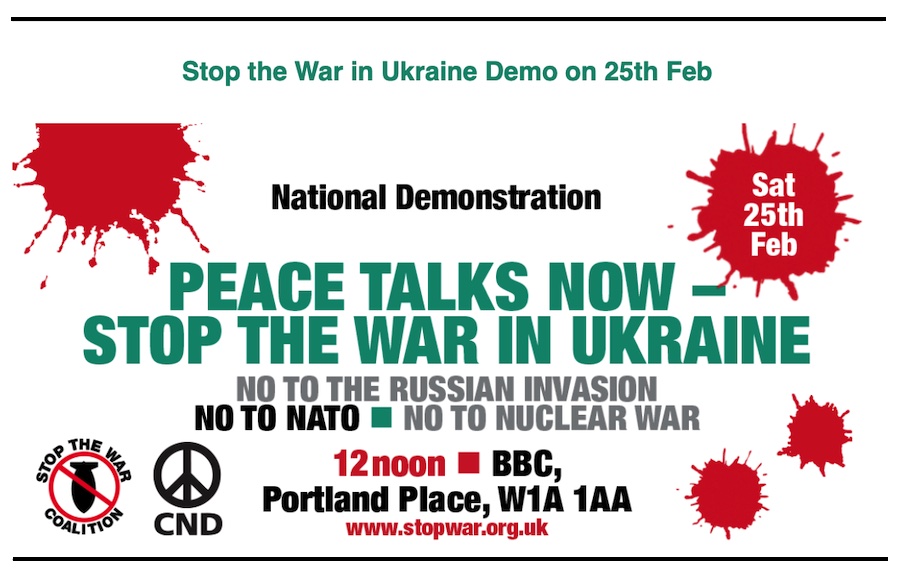. .DISARMAMENT & SECURITY. .
From the website Nuclear Ban
January 22, 2023 to: President Joe Biden, The White House, 1600 Pennsylvania Ave NW, Washington, DC 20500
Dear President Biden,
We, the undersigned, call on you to immediately sign, on behalf of the United States, the Treaty on the Prohibition of Nuclear Weapons (TPNW), also known as the “Nuclear Ban Treaty.”
Mr. President, January 22, 2023 marks the second anniversary of entry into force of the TPNW. Here are six compelling reasons why you should sign this treaty now:
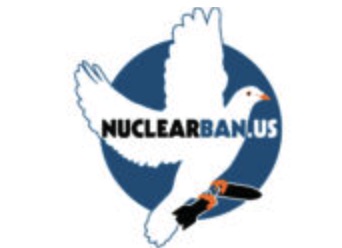
1. It’s the right thing to do. As long as nuclear weapons exist, the risk increases with every passing day that these weapons will be used.
According to the Bulletin of Atomic Scientists, the world stands closer to “doomsday” than at any point even during the darkest days of the Cold War. And the use of even one nuclear weapon would constitute a humanitarian disaster of unparalleled proportions. A full-scale nuclear war would spell the end of human civilization as we know it. There is nothing, Mr. President, that could possibly justify that level of risk.
Mr. President, the real risk we are facing is not so much that President Putin or some other leader will purposely use nuclear weapons, although that is clearly possible. The real risk with these weapons is that human error, computer malfunction, cyber attack, miscalculation, misunderstanding, miscommunication, or a simple accident could so easily lead inexorably to a nuclear conflagration without anyone ever intending it to.
The increased tension that now exists between the US and Russia makes an unintended launch of nuclear weapons so much more likely, and the risks are simply too great to be ignored or downplayed. It is imperative that you take action to reduce those risks. And the only way to reduce that risk to zero is to eliminate the weapons themselves. That is what the TPNW stands for. That is what the rest of the world demands. That is what humanity requires.
2. It will improve America’s standing in the world, and especially with our closest allies.
Russia’s invasion of Ukraine and the US response to it may have greatly improved America’s standing, at least in Western Europe. But the imminent deployment of a new generation of US “tactical” nuclear weapons to Europe could quickly change all that. The last time such a plan was attempted, in the 1980s, it led to enormous levels of hostility toward the US and nearly toppled several NATO governments.
This treaty has enormous public support across the world and especially in Western Europe. As more and more countries sign on to it, its power and significance will only grow. And the longer the United States stands in opposition to this treaty, the worse our standing will be in the eyes of the world, including some of our closest allies.
As of today, 68 countries have ratified this treaty, outlawing everything to do with nuclear weapons in those countries. Another 27 countries are in the process of ratifying the treaty and many more are lining up to do so.
Germany, Norway, Finland, Sweden, Netherlands, Belgium (and Australia) were among the countries who officially attended as observers at the first meeting of TPNW last year in Vienna. They, together with other close allies of the United States, including Italy, Spain, Iceland, Denmark, Japan and Canada, have voting populations who overwhelmingly support their countries signing the treaty, according to recent opinion polls. There are also hundreds of legislators in those countries who have signed the International Campaign to Abolish Nuclear Weapons (ICAN) pledge in support of the TPNW, including the prime ministers of both Iceland and Australia.
It is not a question of “if,” but only of “when,” these and many other countries will join the TPNW and outlaw everything to do with nuclear weapons. As they do, US armed forces and the international corporations involved in the development and production of nuclear weapons will face increasing difficulties in carrying on with business as usual. It is already punishable with an unlimited fine and up to life in prison if found guilty of involvement with the development, production, maintenance, transportation or handling of (anyone’s) nuclear weapons in Ireland.
As it states very clearly in the US Law of War Manual, US military forces are bound by international treaties even when the US does not sign them, when such treaties represent “modern international public opinion” as to how military operations should be conducted. And already investors representing more than $4.6 trillion in global assets have divested from nuclear weapons companies because of the global norms that are shifting as a result of the TPNW.
3. Signing is nothing more than a statement of our intention to achieve a goal that the United States is already legally committed to achieving.
As you know very well, signing a treaty is not the same as ratifying it, and only once it is ratified do the terms of the treaty enter into force. Signing is just the first step. And signing the TPNW does not commit this country to a goal it is not publicly and legally committed to already; namely, the total elimination of nuclear weapons.
The United States has been committed to the total elimination of nuclear weapons since at least 1968, when it signed the Nuclear Non-Proliferation Treaty and agreed to negotiate the elimination of all nuclear arsenals “in good faith” and “at an early date”. Since then, the United States has twice given an “unequivocal undertaking” to the rest of the world that it would fulfil its legal obligation to negotiate the elimination of these weapons.
President Obama famously earned a Nobel Peace Prize for committing the United States to the goal of a nuclear-free world, and you yourself have reiterated that commitment on a number of occasions, most recently on August 1, 2022, when you pledged from the White House “to continue working toward the ultimate goal of a world without nuclear weapons.”
Mr. President, signing the TPNW would demonstrate the sincerity of your commitment to actually achieve that goal. Getting all the other nuclear-armed nations to also sign the treaty would be the next step, ultimately leading to ratification of the treaty and the elimination of all nuclear weapons from all countries. In the meantime, the United States would be no more at risk of nuclear attack or nuclear blackmail than it is at present, and until ratification, would still maintain the same arsenal of nuclear weapons as it does today.
In fact, under the terms of the treaty, the complete, verifiable and irreversible elimination of nuclear weapons only takes place well after ratification of the treaty, in accordance with a legally-binding timebound plan that all parties must agree to. This would allow for staged reductions according to a mutually agreed timetable, as with other disarmament treaties.
4. The whole world is witnessing in real time the reality that nuclear weapons serve no useful military purpose.
Mr. President, the whole rationale for maintaining an arsenal of nuclear weapons is that they are so powerful as a “deterrent” they would never need to be used. And yet our possession of nuclear weapons clearly did not prevent the invasion of Ukraine by Russia. Nor has Russia’s possession of nuclear weapons prevented the United States from arming and supporting Ukraine despite Russia’s threats.
Since 1945, the US has fought wars in Korea, Vietnam, Lebanon, Libya, Kosovo, Somalia, Afghanistan, Iraq, and Syria. Possession of nuclear weapons did not “deter” any of those wars, nor indeed did possession of nuclear weapons ensure that the US “won” any of those wars.
The possession of nuclear weapons by the UK did not prevent Argentina from invading the Falkland Islands in 1982. The possession of nuclear weapons by France did not prevent them losing to insurgents in Algeria, Tunisia or Chad. The possession of nuclear weapons by Israel did not prevent the invasion of that country by Syria and Egypt in 1973, nor did it prevent Iraq from raining down Scud missiles on them in 1991. India’s possession of nuclear weapons did not stop countless incursions into Kashmir by Pakistan, nor has Pakistan’s possession of nuclear weapons stopped any of India’s military activities there.
It is no surprise that Kim Jong-un thinks nuclear weapons will deter an attack on his country by the United States, and yet you would no doubt agree that his possession of nuclear weapons makes such an attack more likely at some point in the future, not less likely.
President Putin threatened to use nuclear weapons against any country that tried to interfere with his invasion of Ukraine. That was not the first time anyone has threatened to use nuclear weapons, of course. Your predecessor in the White House threatened North Korea with nuclear annihilation in 2017. And nuclear threats have been made by previous US Presidents and the leaders of other nuclear-armed nations going all the way back to the aftermath of World War II.
But these threats are meaningless unless they are carried out, and they are never carried out for the very simple reason that to do so would be an act of suicide and no sane political leader is likely to ever make that choice.
In your joint statement with Russia, China, France and the UK in January of last year, you clearly stated that “a nuclear war cannot be won and must never be fought.” The G20 statement from Bali reiterated that “the use or threat of use of nuclear weapons is inadmissible. The peaceful resolution of conflicts, efforts to address crises, as well as diplomacy and dialogue, are vital. Today’s era must not be of war.”
What do such statements mean, Mr. President, if not the utter pointlessness of retaining and upgrading expensive nuclear weapons that can never be used?
5. By signing the TPNW now, you can discourage other countries from seeking to acquire nuclear weapons of their own.
Mr. President, despite the fact that nuclear weapons do not deter aggression and do not help win wars, other countries continue to want them. Kim Jong-un wants nuclear weapons to defend himself from the United States precisely because we continue to insist that these weapons somehow defend us from him. It is no surprise that Iran might feel the same way.
The longer we go on insisting that we must have nuclear weapons for our own defense, and that these are the “supreme” guarantee of our security, the more we are encouraging other countries to want the same. South Korea and Saudi Arabia are already considering acquiring their own nuclear weapons. Soon there will be others.
How can a world awash in nuclear weapons possibly be safer than a world without any nuclear weapons? Mr. President, this is the moment to seize the opportunity to eliminate these weapons once and for all, before more and more countries are engulfed in an uncontrollable arms race that can have only one possible outcome. Eliminating these weapons now is not just a moral imperative, it is a national security imperative.
Without a single nuclear weapon, the United States would still be the most powerful country in the world by a very wide margin. Together with our military allies, our military spending outpaces all our potential adversaries put together many times over, every single year. No country on earth comes close to being able to seriously threaten the United States and its allies – unless they have nuclear weapons.
Nuclear weapons are the global equalizer. They enable a comparatively small, poor country, with its people virtually starving, to nevertheless threaten the mightiest world power in all of human history. And the only way to finally eliminate that threat is to eliminate all nuclear weapons. That, Mr. President, is a national security imperative.
6. There is one final reason for signing the TPNW now. And that is for the sake of our children and grandchildren, who are inheriting a world that is literally burning down in front of our eyes as a result of climate change. We cannot adequately address the climate crisis without also addressing the nuclear threat.
You have taken important steps to address the climate crisis, through your infrastructure bill and the inflation reduction act. You have been hampered by Supreme Court decisions and a difficult Congress from achieving more of what you know is needed to fully address this crisis. And yet, trillions of taxpayer dollars are being poured into developing the next generation of nuclear weapons, along with all the other military hardware and infrastructure you have signed off on.
Mr. President, for the sake of our children and grandchildren, please use this opportunity to switch gears and begin the transition to a sustainable world for them. You don’t need Congress or the Supreme Court to sign a treaty on behalf of the United States. That is your prerogative as President.
And by signing the TPNW, we can begin the monumental shift of resources that is needed from nuclear weapons to climate solutions. By signalling the beginning of the end of nuclear weapons, you would be enabling and encouraging the vast scientific and industrial infrastructure that supports the nuclear weapons industry to begin to make that transition, along with the billions in private finance that support that industry.
And most importantly, you would be opening up a door to improved international cooperation with Russia, China, India and the EU without which no action on climate will be sufficient to save the planet.
Mr. President, as the first country to develop nuclear weapons and the only country to have ever used them in war, the United States bears a special moral responsibility to ensure they are never used again. As you yourself said in a speech on January 11, 2017, “If we want a world without nuclear weapons—the United States must take the initiative to lead us there.” Please, Mr. President, you can do this! Please take the first clear step to nuclear abolition and sign the Nuclear Ban Treaty.
Yours sincerely,
(Article continued in right column)
Question for this article:
The peace movement in the United States, What are its strengths and weaknesses?
Where in the world can we find good leadership today?
(Article continued from left column)
* Organizations in bold = official signatories, organizations not in bold are for identification purposes only
Timmon Wallis, Vicki Elson, Co-Founders, NuclearBan.US
Kevin Martin, President, Peace Action
Darien De Lu, President, US Section, Women’s International League for Peace and Freedom
Ivana Hughes, President, Nuclear Age Peace Foundation
David Swanson, Executive Director, World Beyond War
Medea Benjamin, Jodie Evans, Co-Founders, CodePink
Johnny Zokovitch, Executive Director, Pax Christi USA
Ethan Vesely-Flad, Director of National Organizing, Fellowship of Reconciliation (FOR-USA)
Melanie Merkle Atha, Executive Director, Episcopal Peace Fellowship
Susan Schnall, President, Veterans For Peace
Hanieh Jodat, Partnerships Coordinator, RootsAction
Michael Beer, Director, Nonviolence International
Alan Owen, Founder, LABRATS (Legacy of the Atomic Bomb. Recognition for Atomic Test Survivors)
Helen Jaccard, Manager, Veterans For Peace Golden Rule Project
Kelly Lundeen and Lindsay Potter, Co-Directors, Nukewatch
Linda Gunter, Founder, Beyond Nuclear
Leonard Eiger, Ground Zero Center for Nonviolent Action
Felice and Jack Cohen-Joppa, Nuclear Resister
Nick Mottern, Co-coordinator, Ban Killer Drones
Priscilla Star, Director, Coalition Against Nukes
Cole Harrison, Executive Director, Massachusetts Peace Action
Rev. Robert Moore, Executive Director, Coalition For Peace Action (CFPA)
Emily Rubino, Executive Director, Peace Action New York State
Robert Kinsey, Colorado Coalition for the Prevention of Nuclear War
Rev. Rich Peacock, Co-Chair, Peace Action of Michigan
Jean Athey, Secretary of the Board, Maryland Peace Action
Martha Speiss, John Raby, Peace Action Maine
Joe Burton, Treasurer of the Board, North Carolina Peace Action
Kim Joy Bergier, Coordinator, Michigan Stop The Nuclear Bombs Campaign
Kelly Campbell, Executive Director, Oregon Physicians for Social Responsibility
Sean Arent, Nuclear Weapons Abolition Program Manager, Washington Physicians for Social Responsibility
Andrea Jones, Government Relations and Public Policy Director, Georgia WAND Education Fund, Inc.
Lizzie Adams, Green Party of Florida
Lois Gagnon, Co-Chair, Green-Rainbow Party of Massachusetts
Doug Rawlings, Veterans For Peace Maine Chapter
Mario Galvan, Sacramento Area Peace Action
Gary Butterfield, President, San Diego Veterans For Peace
Michael Lindley, President, Veterans For Peace Los Angeles
Dave Logsdon, President, Twin Cities Veterans For Peace
Bill Christofferson, Veterans For Peace, Milwaukee Chapter 102
Philip Anderson, Veterans For Peace Chapter 80 Duluth Superior
John Michael O’Leary, Vice President, Veterans For Peace Chapter 104 in Evansville, Indiana
Jim Wohlgemuth, Veterans For Peace The Hector Black Chapter
Kenneth Mayers, Chapter Secretary, Veterans for Peace Santa Fe Chapter
Chelsea Faria, Demilitarize Western Mass
Claire Schaeffer-Duffy, Program Director, Center for Nonviolent Solutions, Worcester, MA
Mari Inoue, Co-Founder, Manhattan Project for a Nuclear-Free World
The Rev. Dr. Peter Kakos, Maureen Flannery, Nuclear Free Future Coalition of Western Mass
Douglas W. Renick, Chair, Haydenville Congregational Church Peace and Justice Steering Committee
Richard Ochs, Baltimore Peace Action
Max Obuszewski, Janice Sevre-Duszynka, Baltimore Nonviolence Center
Arnold Matlin, Co-Convenor, Genesee Valley Citizens for Peace
The Rev. Julia Dorsey Loomis, Hampton Roads Campaign to Abolish Nuclear Weapons (HRCAN)
Lorie Cartwright, Trustee, New England Coalition on Nuclear Pollution Inc.
Jessie Pauline Collins, Co-Chair, Citizens’ Resistance at Fermi Two (CRAFT)
Keith Gunter, Chair, Alliance To Halt Fermi-3
Hendrica Regez, Chair, Galena Green Team
Julie Levine, Co-Director, MLK Coalition of Greater Los Angeles
H.T Snider, Chair, One Sunny Day Initiatives
Topanga Peace Alliance
Ellen Thomas, Director, Proposition One Campaign for a Nuclear-Free Future
Lynn Sableman, Branch President, WILPF St. Louis
Mary Faulkner, President, League of Women Voters of Duluth
Sister Clare Carter, New England Peace Pagoda
Tracy Powell, No More Bombs
Ann Suellentrop, Program Director, Physicians for Social Responsibility – Kansas City
Robert M. Gould, MD, President, San Francisco Bay Physicians for Social Responsibility
Cynthia Papermaster, Coordinator, CODEPINK San Francisco Bay Area
Patricia Hynes, Traprock Center for Peace and Justice
Christopher Allred, Rocky Mountain Peace and Justice Center
Jane Brown, Newton Dialogues on Peace and War
Steve Baggarly, Norfolk Catholic Worker
Mary S Rider and Patrick O’Neill, Founders, Father Charlie Mulholland Catholic Worker
Jill Haberman, Sisters of St. Francis of Assisi
Rev. Terrence Moran, Director, Office of Peace, Justice, and Ecological Integrity/Sisters of Charity of Saint Elizabeth
Thomas Nieland, President Emeritus, UUFHCT, Alamo, TX
Henry M. Stoever, Co-Chair, PeaceWorks Kansas City
Rosalie Paul, Coordinator, PeaceWorks of Greater Brunswick, Maine
New York Campaign to Abolish Nuclear Weapons (NYCAN)
Craig S. Thompson, White House Antinuclear Peace Vigil
Jim Schulman, President, A Thousand Friends of Virginia’s Future
Mary Gourdoux, Border Peace Presence
Alice Sturm Sutter, Uptown Progressive Action, New York City
Donna Gould, Rise and Resist NY
Anne Craig, Reject Raytheon Asheville
Nancy C. Tate, LEPOCO Peace Center (Lehigh-Pocono Committee of Concern)
Marcia Halligan, Kickapoo Peace Circle
Marie Dennis, Assisi Community
Mary Shesgreen, Chair, Fox Valley Citizens for Peace & Justice
Jean Stevens, Director, Taos Environmental Film Festival
Mari Mennel-Bell, Director, JazzSLAM
Diana Bohn, Coordinator, Nicaragua Center for Community Action
Nicholas Cantrell, President, Green Future Wealth Management
Mary Hanson, Chair, Seattle Fellowship of Reconciliation
Charles Michaels, Coordinator, Pax Christi Baltimore
Sven Lovegren, Coordinator, UUCA Peace Network
Rachel Roberts Bliss, Founder and Administrator, Western North Carolina for Peace
Jane Leatherman Van Praag, President, Wilco Justice Alliance (Williamson County, TX)
Ernes Fuller, Vice Chair, Concerned Citizens for SNEC Safety (CCSS)
The World Is My Country
Carmen Trotta, Catholic Worker
Paul Corell, Shut Down Indian Point Now!
Patricia Always, West Valley Neighborhoods Coalition
Thea Paneth, Arlington United for Justice with Peace
Carol Gilbert, OP, Grand Rapids Dominican Sisters
Susan Entin, Church of St. Augustine, St. Martin
Maureen Doyle, MA Green Rainbow Party
Lorraine Krofchok, Director, Grandmothers for Peace International
Jasmin Nario-Galace, Facilitation Committee, Pax Christi Asia-Pacific
Bill Kidd, MSP, Convenor, Scottish Parliament Cross Party Group on Nuclear Disarmament
Ed Lehman, President, Regina Peace Council
Dr David Hutchinson Edgar, Chairperson, Irish Campaign for Nuclear Disarmament / An Feachtas um Dhí-Armáil Núicléach
Marian Pallister, Chair, Pax Christi Scotland
Ranjith S Jayasekera, Vice President, Sri-Lanka Doctors for Peace and Development
Juan Gomez, Chilean Coordinator, Movimiento Por Un Mundo Sin Guerras Y Sin Violencia
Darien Castro, Co-Founder, Wings for Amazon Project
Loreta Castro, Co-President, Pax Christi Philippines
Lynda Forbes, Secretary, Hunter Peace Group Newcastle, Australia

